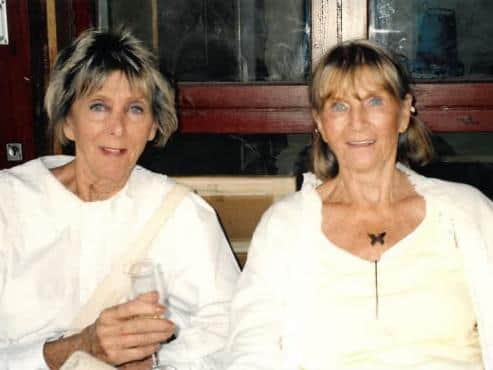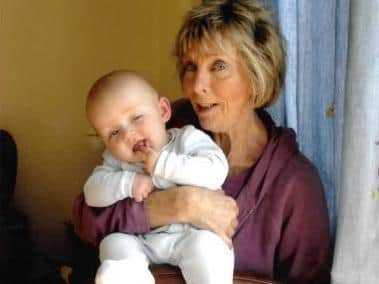Northants woman’s daughter backs bid for inquiry into assisted dying laws after she ‘lost precious time with her mum’


Vicky Wellesley, who lived in Pitsford, took her own life in 2018 after a terminal metastatic cancer diagnosis.
Following the death of their 83-year-old mum, Kate and Adam Wellesley were questioned by Northamptonshire Police after evidence was found that they had researched Dignitas, the assisted suicide organisation in Switzerland, at their mother’s request.
The case was dropped last year.


Advertisement
Hide AdAdvertisement
Hide AdKate, who is a nurse, is now backing Dignity in Dying’s campaign entitled ‘Compassion is not a crime’, which urges the Ministry of Justice to look at the UK’s blanket ban on assisted dying.
The 51-year-old said: “All our mum wanted was to die peacefully and with dignity, and she took the only action still available to her.
“She looked into Dignitas but was too ill to make a journey.
“I never thought that simply following our mother’s wish to look into this option would end with us being investigated by detectives.


Advertisement
Hide AdAdvertisement
Hide Ad“If we had more compassionate assisted dying laws in the UK, mum would not have ended her own life, alone, earlier than she wanted and her children’s small acts of kindness and love would not have been criminalised.
“My brother and I feel robbed of extra time we could have had with her.”
Dignity in Dying’s campaign is urging Justice Secretary, Robert Buckland, to launch an inquiry into the impact the current legislation has on family members.
Kate added: “Assisted dying isn’t a choice between living or dying - cancer had already made that choice for our mum - it’s simply about choosing how you die.
Advertisement
Hide AdAdvertisement
Hide Ad“People should be able to go in their own time, with their family around them.
“I hope the Justice Secretary recognises the overwhelming evidence that our current legislation isn’t working and launches an urgent review.”
The police and crime commissioner for Northamptonshire is also backing the campaign.
Stephen Mold said: “In October I wrote to the Justice Secretary alongside 17 fellow Police and Crime Commissioners to express our misgivings with the current law on assisted dying, which has undeniably caused distress, confusion and pain for terminally ill people, their loved ones and even the investigating police officers themselves.
Advertisement
Hide AdAdvertisement
Hide Ad“We are concerned that current legislation merely drives assisted deaths overseas or underground, that it does not offer adequate protection to potentially vulnerable people, and that it is near-impossible to enforce in most cases.
“Law-enforcers have an important perspective to offer, and I hope law-makers will provide an opportunity for us to share our views.”
Sarah Wootton, chief executive for Dignity in Dying, added: “Compassion should not be a crime, but under the UK’s blanket ban on assisted dying, it is.
“Not only are dying people denied the right to die on their own terms, forcing them to resort to drastic measures at home and abroad, but their family members are then criminalised for acts of love.
Advertisement
Hide AdAdvertisement
Hide Ad“An inquiry would enable the views of those most affected to be heard - terminally ill people, their loved ones, the police and other public services.
“We call on the Justice Secretary, Robert Buckland, to launch a call for evidence as a matter of urgency.
“Our outdated assisted dying laws deserve to be scrutinised, not dying people or their loving families."